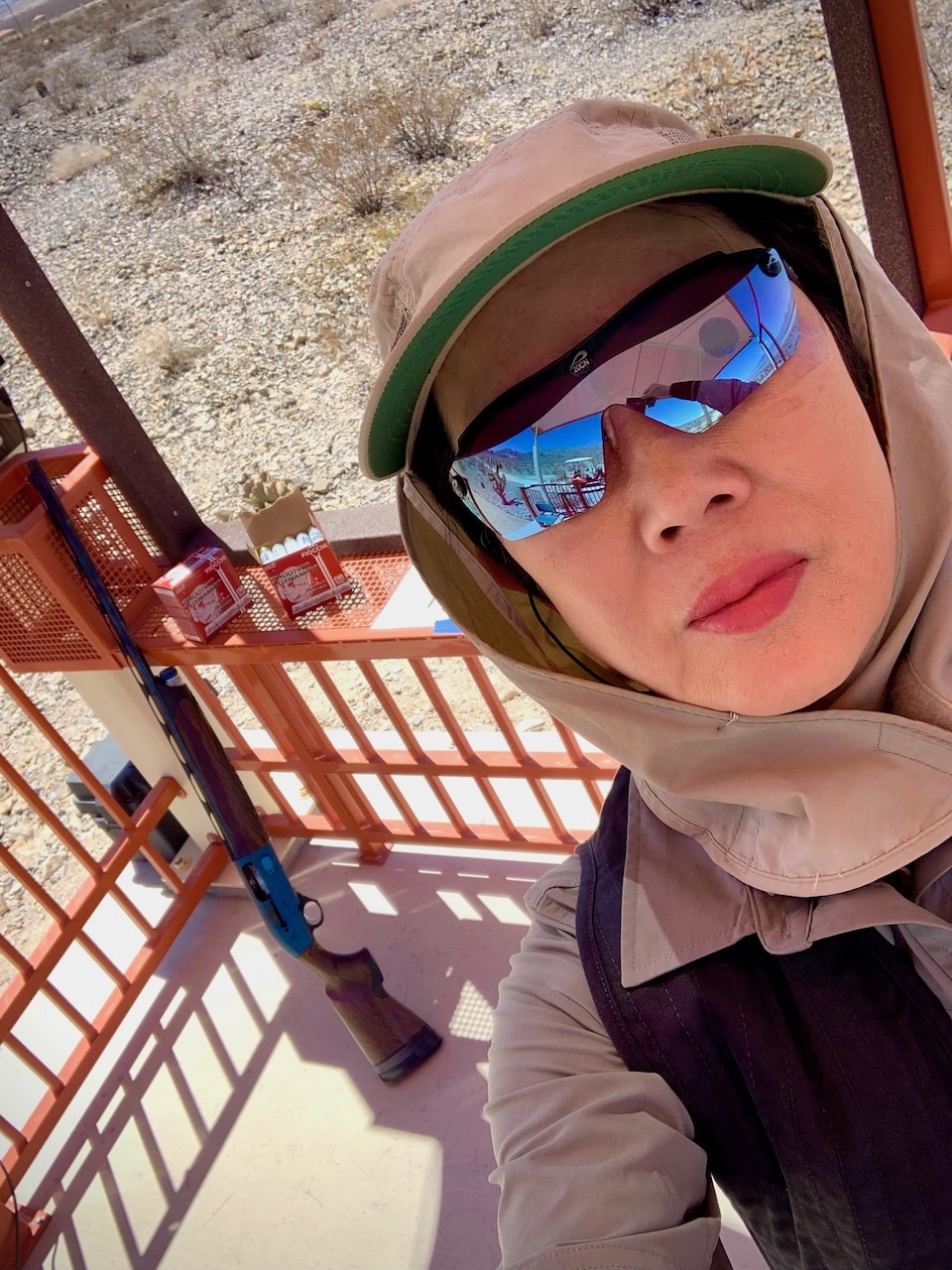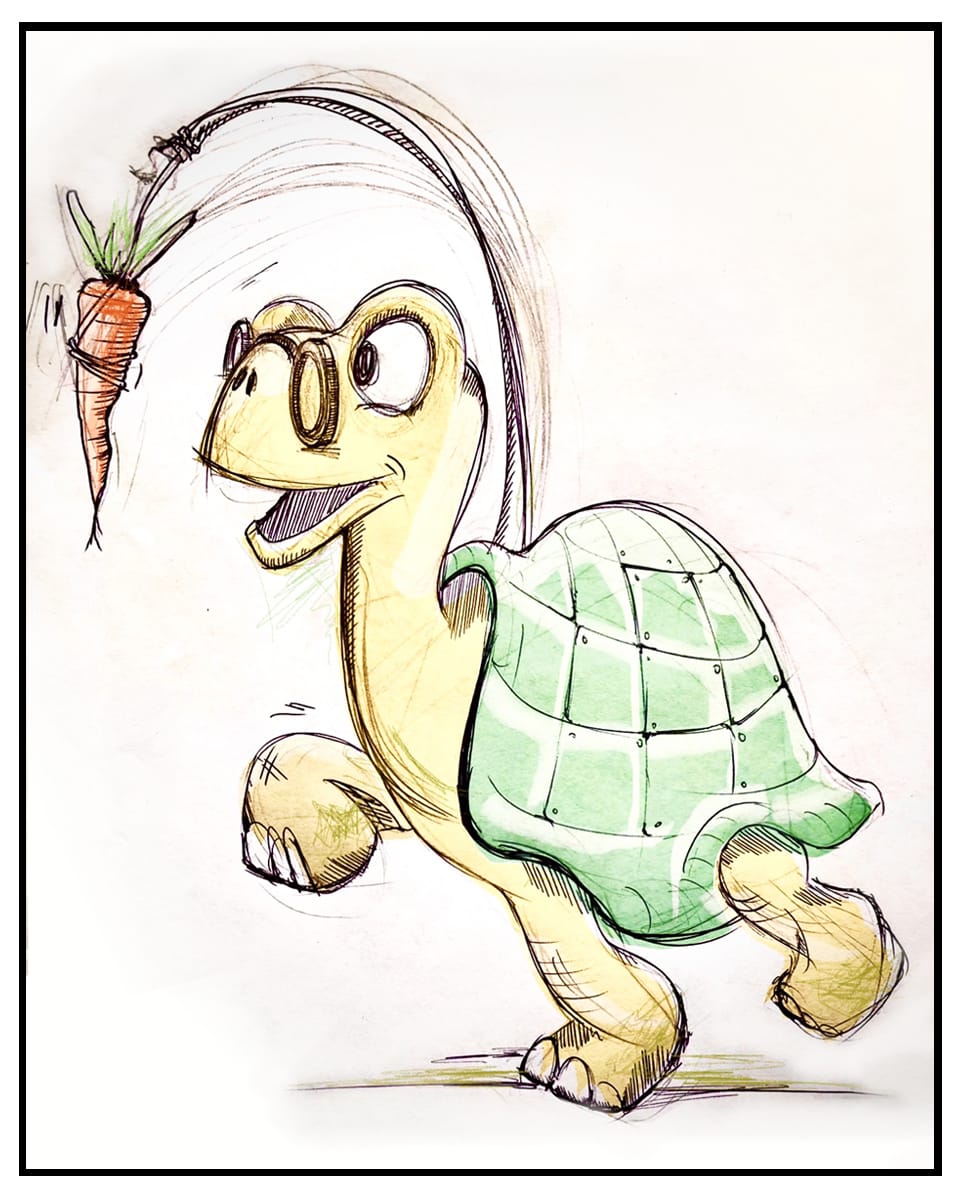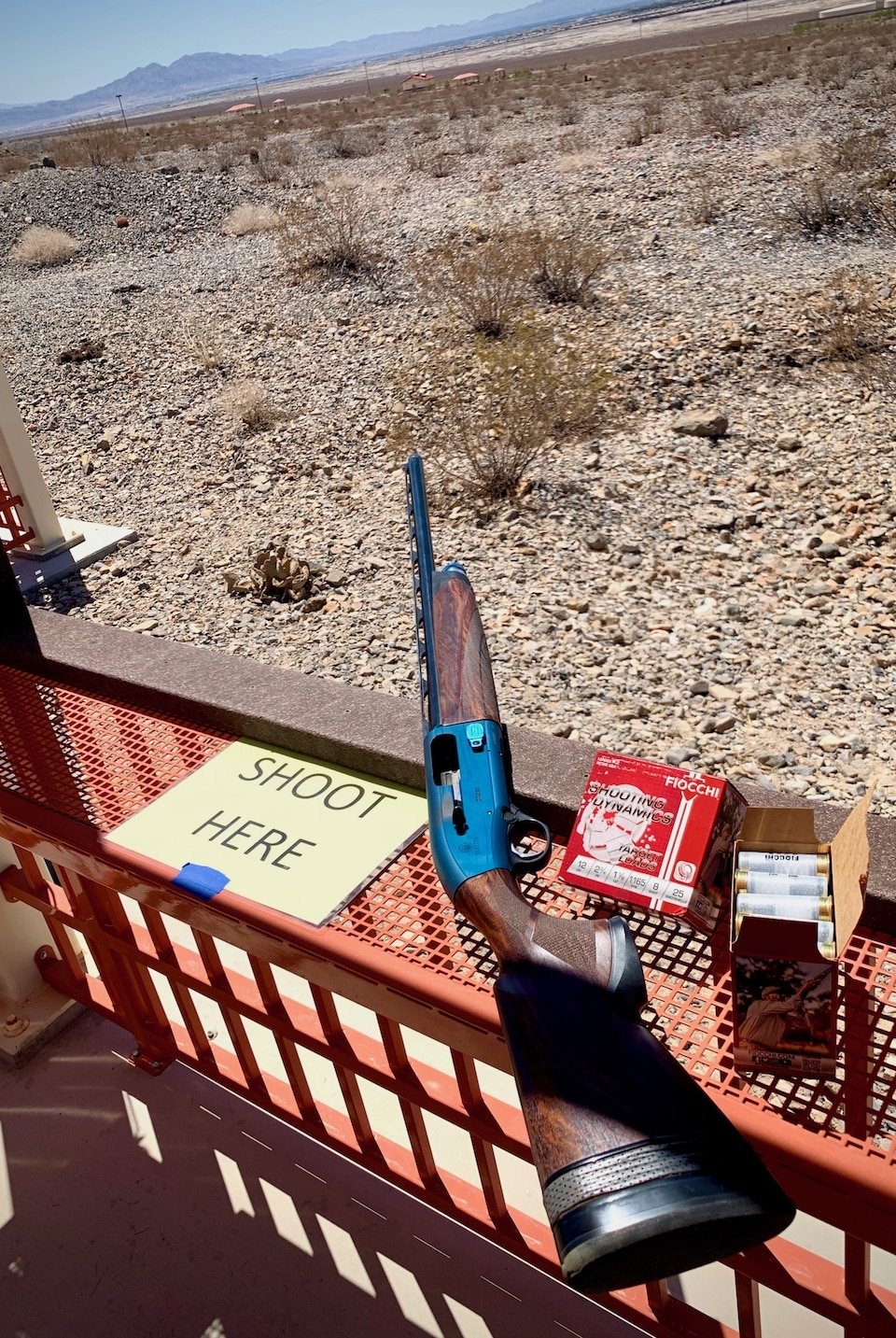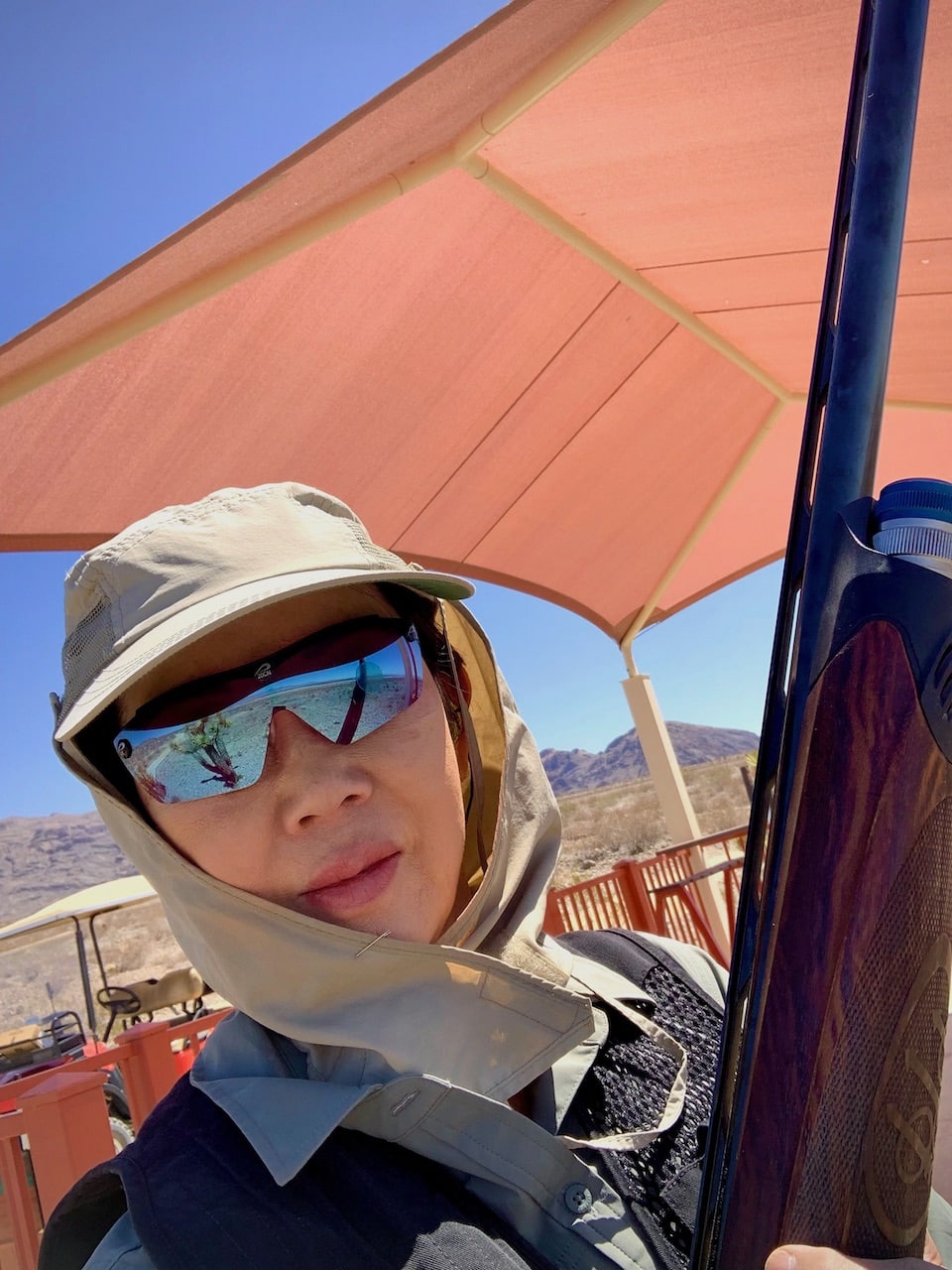I signed up to compete in sporting clay club matches this summer before I felt ready. I signed up for them, because I have competed in shooting sports long enough to know that if you wait to enter your first competition until you feel ready, you will never sign up.
Sponsored by Vera Koo
Throughout my pistol shooting career – competing in Steel Challenge and the Bianchi Cup – I trained tirelessly. But being committed and disciplined in your preparation is not the same as feeling ready for your first competition.
If you never sign up, you will never get going. You must push yourself to jump in with two feet and accept that you must pay your dues before you attain the results you desire.

So, I will participate in a sporting clay match in Ontario, California, in July and another in August, along with two matches in Clark County, Nevada, this summer as I prepare for the Huntsman World Senior Games this October in Utah.
I credit my husband, Carlos, for instilling this attitude in me and our children. He showed our family how to fly by the seat of our pants.
Carlos gravitates to new, exciting adventures and activities, and he continues to set an example that it’s OK to embrace something new, even if you don’t feel you are an expert at first – because no one is an expert before she enters the arena and begins to find her way.
Although I cannot expect to be on top of my game at this point in my sporting clay shooting journey, it feels good to be striving toward improvement. I don’t feel stale. I feel invigorated. At 75-years old, I have a reason to exercise. I have a carrot to chase, a challenge to drive me and help keep me focused.
I should have known when I retired from the Bianchi Cup following the 2018 competition that my road in competitive shooting had not reached its end.
To be my best self, I need goals and structure.

Also, solitary sports suit my nature.
When I was in my 30s, almost all my lady friends were taking tennis classes, and they asked me to join them. I considered their offer and how I knew nothing about racquet sports. My lack of experience was not a dealbreaker, though. After all, I learned equestrian, windsurfing, snow and water skiing despite no athletic upbringing or natural ability in these sports.
Rather, my hesitancy toward tennis was tied to it not being a solitary sport. Sure, I could practice at home by hitting a ball against the wall, but to truly improve or compete, I would have needed a partner with whom to train. That would have required coordinating our schedules and finding time that worked for both of us between raising kids and keeping up a household.
I decided against taking up tennis.
Decades later, I feel no regrets. The gun range calls to me more than a tennis court.
Transitioning from sport pistol competitions to shotgun shooting is not as basic as it might seem.
Bianchi Cup is a precision sport. Accuracy is valued above all else. You must be able to consistently hit a four-inch target from 50 yards.
This game is different. So is the required mindset. I must learn to be nimble and position myself to fire at targets coming from various, unpredictable directions. It is foreign for me to hit one target, then turn 180 degrees and fire at another. That’s not to mention the differences in trigger control and technique in mounting the gun.
Still, my Bianchi Cup experience afforded me some advantages. I understand shooting verbiage. I appreciate the work ethic and persistence required to get to where I want to be. I have developed a comfort competing in the outdoors in various weather conditions. And I know the value of training and instruction.
When I started participating in pistol competitions, I struggled to find instructors who would take me under their wing or gunsmiths to build my equipment.

I started in Steel Challenge as a middle-aged, Chinese-American woman with no upbringing in shooting, and it took two years for a gunsmith to build my first competition gun – and I only received it as soon as I did thanks to the help of a shooting friend, who encouraged the gunsmith to equip me. Of course, after I became a well-known pistol shooter, many gunsmiths volunteered to build guns for me, but that does not solve the issue of equipping new shooters.
That’s why I felt excited when I learned that my first sporting clays instructor doubled as a gunsmith. Upon hearing this, I signed up with him immediately, and he helped fit me with the proper equipment needed for this sport. Already, I have worked with five instructors, most recently training three days a week in three-hour sessions with an instructor in Ontario, California.
I am at home on the gun range, and I gravitate to training like a bug to a light. I would practice daily if my body allowed it, but I learned throughout my years of competition that too much training can be as harmful as too little.
My Bianchi Cup career taught me that three days a week is the least amount in training at the start of a new sport. At my age, I must be especially guarded against injury. I shoot up to 250 shells in 12 gauge during my practice sessions. I am right-handed, so my left arm holds the shotgun. By the end of a training week, my left arm is sore. However, I also feel this arm is growing stronger.

And I would rather deal with bouts of soreness, with physical and massage therapy sessions than wither away in retirement.
I want to continue learning and competing while I am healthy, knowing that my clock is ticking.
My mind is sharp. My spirits are upbeat. I am committed in my focus and preparation.
Am I ready for competition?
Well, maybe not.
But it’s time to dive in and find out where I stand.
Vera Koo is a first-generation Chinese American woman. She’s a wife and mother, author, entrepreneur and retired competition shooter. Along with two published books -- "The Most Unlikely Champion" and "Wisdom and Things: Essays From an Unlikely Champion" -- she writes her column, Vera Koo, at "Women’s Outdoor News." View all posts by Vera Koo